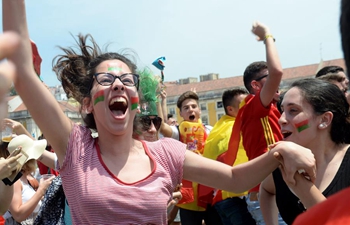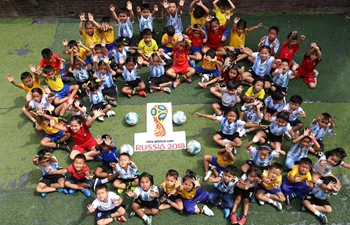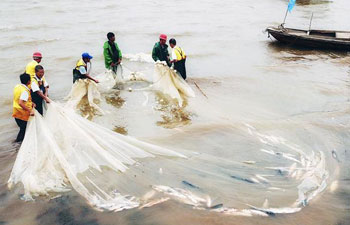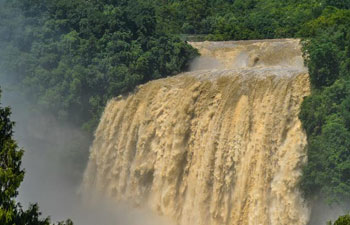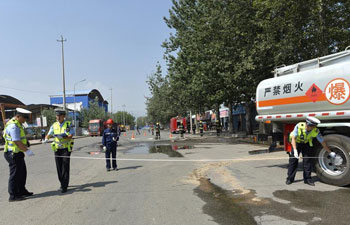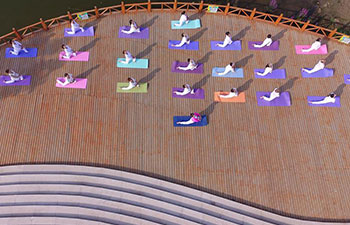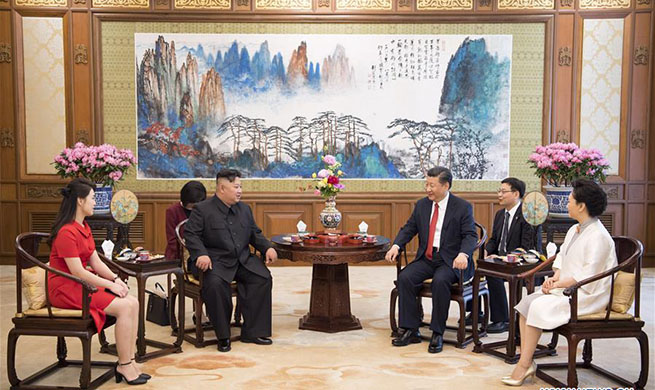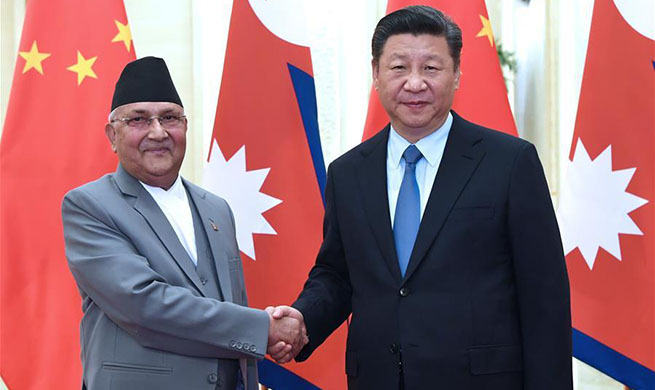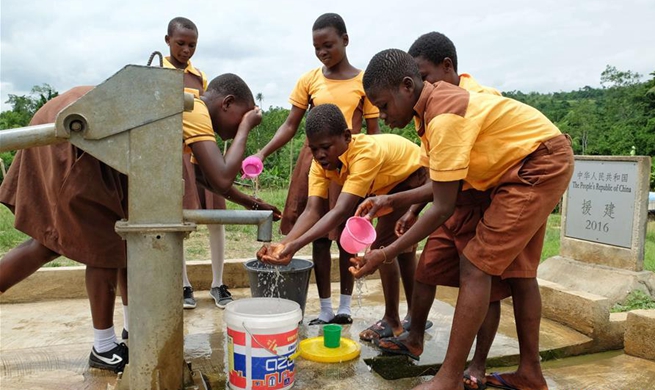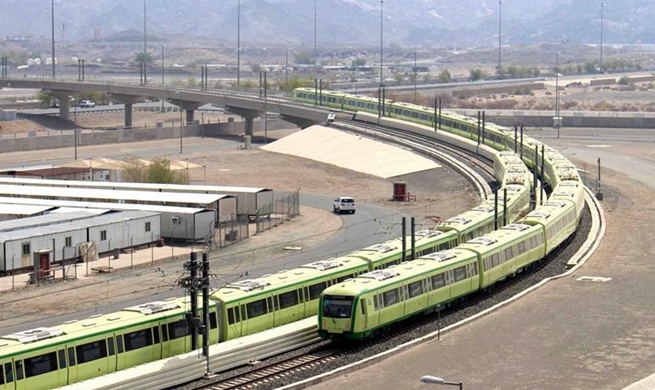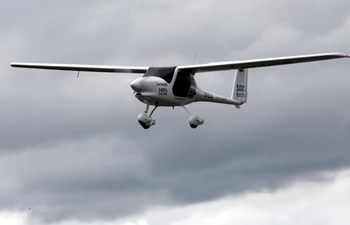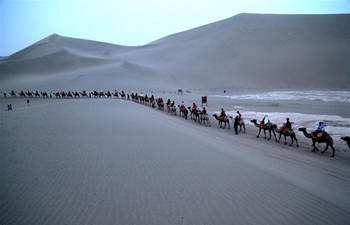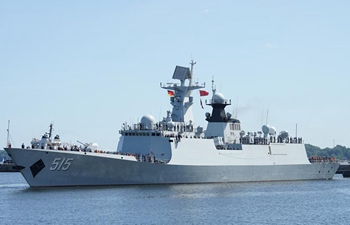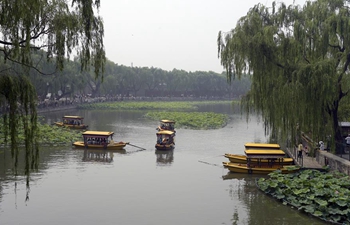BEIJING, June 21 (Xinhua) -- A Coca Cola advertisement has recently made waves on Chinese social media, but not because of its scenes or its catchy rhythms. The reason behind its popularity is the identity of its director. It's Hannes Halldorsson, the goalkeeper of the Icelandic national football team.
Halldorsson came into the spotlight after Iceland held Argentina to a 1-1 draw in their debut in the World Cup. His superb saves, especially his denial of Argentine superstar Lionel Messi's penalty, had helped Iceland earn a point.
After that match, Halldorsson's Coca Cola advertisement was reposted more than 10 thousand times on the Chinese social media platform twitter-like Sina Weibo, with users astounded that a director by trade could give such an impressive performance on the pitch.
Later, rumors surfaced that the Icelandic national team was comprised of non-professional players, and that playing football was only their part-time job.
Icelandic Ambassador Gunnar Snorri Gunnarsson clarified this point in an interview with Xinhua on Wednesday.
"Every one of our national team is a professional player. We have about 100 professional players in Iceland," he pointed out.
Gunnarsson explained that in addition to their devotion to football as professionals, they have acquired other skills to ensure a decent living after retirement.
"They are always ready to go back to normal life. They keep open to a second career. Because the career of a football player is short, so you have to prepare for life after that."
The story of goalkeeper and director Halldorsson is not a rare case, the ambassador said. He also shared stories of other professional players who achieved success in their second career.
Albert Gudmundsso, after a highlighted football career at Arsenal, Nice and AC Milan, excelled in import and export trade and later became the country's ambassador to France. Another example is the Chairman of Icelandic Football Association, Gudni Bergsson. He was a professional footballer in England and studied law there while he played.
These multifaceted players, known as the Strakamir Okkar, or "our boys" in Icelandic, first surprised the world in the 2016 UEFA European Championships. Being newcomers to the tournament, Iceland not only made it to the knockout stage, but also defeated top dogs England 2-1 to head into the quarterfinals. Although their journey as dark horses ended in the 5-2 loss to hosts France, their performance put them on the map of world football.
A decade ago, Iceland was a mere 131st in the FIFA Rankings. It's hard to imagine how a country with less than 350,000 people managed to shine at a top-level international tournament. The ambassador gave three reasons for their success.
"Iceland does not have a very hospitable climate. It's very difficult to play in winter. But we have built quite a few indoor football fields so that people now can also train in the winter time."
He added that Iceland now has 179 full size pitches, which means there's one for every 1,800 habitants or every 128 registered players. Importantly, most of these pitches were built near schools.
"Youth work is exactly the key," said the Ambassador, "and we have set up a system so that even the kids, boy or girl, who want to play football can have a professional coach to help them. At a young age, you can have professional guidance."
With advanced facilities, professional coaching plus attention to youth training, the Icelandic national team has written their own history. Now that they have started their World Cup with an impressive draw against Argentina, expectations are high for them to duplicate their 2016 miracle.
But for the Icelandic people, they are already national heroes for having made it to Russia.
"They are sure to get a warm welcome when they come home, no matter what happens. Because everyone is just so happy that we are, for the first time, in the World Cup."
The ambassador became quite emotional as he recalled the qualification match in 2014 when he himself saw the nation's World Cup dreams crushed by Croatia. But just four years later, they have made a strong comeback.
"It's a long time waiting. There is a big poster at the airport of Iceland saying 'We have been waiting for the World Cup since 1947'."




